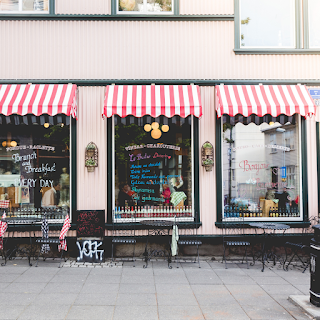Tale of Rafique the retailer
Rafique’s (name changed) shop used
to be a small outlet in the underdeveloped area of Rajarhat in the outskirts of
Kolkata. Then yet to be named, his shop was an extension of his small hut
adjacent to a newly built housing society with few occupants. In 2017, there
was a fridge for dairy products and a room little larger than a goomty for
other articles. Rafique had limited his product range to certain SKUs of FMCG
products. A few footfalls every day would make his daily routine.
Cut to 2021; he now has three shops
in the vicinity. His first one expanded to double its size and capacity. He now
has a wide range of offerings for the increased number of residents in the
housing societies that emerged in the neighbourhood.
How was he able to achieve such
exponential success? Upon observation, there are a few factors that catapulted
him to where he is:
1. The
expansion of the city:
Kolkata is expanding, much like any other metro city. So it is evident
that the immigrating population will soon occupy the outskirt areas. As the
exodus of people increased, the number of housing societies also saw a rise.
With it, the number of residents also increased.
2. Location:
One of the
key success factors of a retail store are its location. Rafique's store is at
the juncture of slums and buildings. The area is undesirable by established
supermarket chains (the nearest 'More' is 5 minutes drive from his shop, and
the closest 'Spencer's' is farther). The people in the close apartments prefer
to get things from him than anywhere else.
3. Telephonic
service: There were a few disadvantages to his shop than
established chains. But there was one big POD that he heavily encashed upon –
taking orders through calls. His customers called him and told him their list.
He used to keep those items and quantities saved aside to come and pick up at
their own convenient time. This process also saved customers' time and effort
if some of the products demanded were out of stock.
4. Shorter
delivery time: Though groceries deliveries had
made their presence back then, Rafique's TAT was far less and easy to refund
and review.
Rafique’s store survived the test of time:
During the COVID 19 pandemic, stores
like Rafique's were on demand when the world was under lockdown. He had
maintained his relationship with his customers and tried every possible way to
keep up the supplies. Whenever he used to get a fixed quantity of any product,
he requested his customers not to over-purchase, as was the panic purchase
habit seen during the lockdown. This may seem like a stupid decision turning
down customers when the product is available and his business is struggling to
survive. But, on deeper analysis, he saved the remaining quantities for other
customers. Almost everyone has some products for a few days instead of someone
having every product. He assured his customers that supplies will be here next
week and that his customers need to think only for a week. This behaviour had a
threefold benefit:
1. Customers – He served a more
extensive customer base with minimum resources.
2. His
business – He ensured the customers keep visiting him and kept
a good relationship over the phone.
3. The
society – He kept a check on people’s panic buying behaviour.
What Rafique has to teach us:
Unbeknownst
to Rafique, his retail has many learnings about doing business, expanding
business and sustaining turbulent times. I have tried to match my learnings
from his experience with the theories taught at my B-school.
1. Start with small and scale-up: Rafique had a humble
beginning like many other small retailers. Looking at his shop back then, one
couldn’t have said he would be growing so fast and so vigorously. He kept one
leg in the present and one in the future and steadily sailed towards success.
2. Guerrilla Marketing: Al Ries and Jack Trout,
in their bestseller 'Marketing Warfare', talk about not
having enough resources. They can't take a head-on market challenge with the
big shots. They need to find their niche and try to become the market leader in
their domain. They name this marketing strategy, 'Guerrilla Marketing'.
Rafique, unaware of the theory, has been able to execute and achieve the same.
He chose a niche that was hitherto unserved and needed a retail store. He
grabbed the opportunity and kept himself afloat.
3. Segmentation: For targeting a particular segment,
a businessman needs to gauge the size of the segment, its growth, and potential
revenue opportunities in both the short and long term. The housing societies
and apartments were coming up. So, though the size was small, it had high
growth potential. And the same happened as his shops now remain crowded in most
of the evening hours.
4. Customer service: By keeping in touch with
customers' requirements, taking deliveries through phone calls, Rafique
maintains a personal contact and cordial relationship with his customers,
something which the apps and AI severely lack.
There are many such cases of small
businessmen doing wonders around India for us to learn. Rafique is one of them.
I plan to write more about these businesspersons and what they have in store
for us. Till then, if you find any small retailer struggling to survive or
doing excellent business, please buy from them. We need to encourage small
retail for making an economy for everybody.
Follow me on Instagram @devayanganguly




Comments
Post a Comment